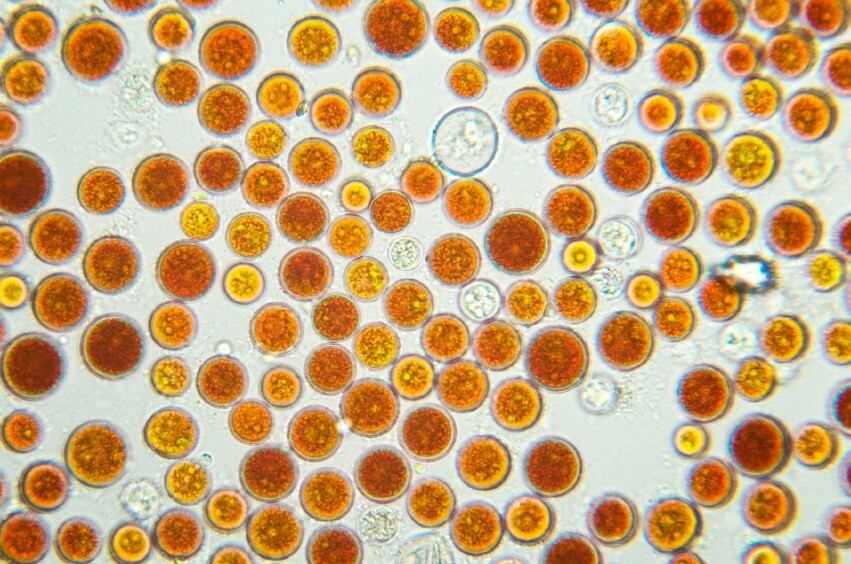Data from a 16-week clinical study with 65 healthy women found that the pinkish-red pigment may protect against wrinkles and loss of skin moisture, as well as improving skin elasticity, compared to placebo.
Additional data from in vitro and in vivo studies indicated that astaxanthin inhibited the production of inflammatory compounds from skin cells upon exposure to UVB radiation.
“Long-term astaxanthin supplementation may prophylactically inhibit skin deterioration induced over time by environmental damage and consequently retard the skin aging process via its anti-inflammatory effect,” wrote Kumi Tominaga et al from AstaReal Co., Ltd in the Journal of Clinical Biochemistry and Nutrition.
Meaningful?
Commenting independently on the study’s results, Mark Miller, PhD, Principal of Kaiviti Consulting, LLC told us that the key question from the study is, “Do these experimental conditions and findings relate to a meaningful result in human skin in a clinical setting?”
“These are always tricky experiments to design and interpret,” said Dr Miller. “Often one encounters conclusions that are more robust than the data in skin health studies. Here Tominaga et al. were reasonably conservative in their conclusions while applying a detailed and reasonably sophisticated protocol. Their results emphasized that a 16-week course of astaxanthin (6 or 12 mg) did not reverse skin changes that pre-existed, but astaxanthin was able to suppress deterioration of the skin that developed over the 4-month trial.
“This is a reasonable interpretation and perhaps a result that fosters a better description of the benefits of astaxanthin with consumer use. Even so, one notes that skin deterioration in a 4-month period under normal conditions is not dramatic. Study designs that are much longer e.g., 2 years may produce far more engaging results. Those types of clinical trial designs are virtually non-existent at this time, so instead we will have to work with anticipated projections from this 4-month trial.”
“Astaxanthin is a carotenoid with the enigma of being a remarkably powerful free radical scavenger but yet whose dietary sources are limited. This study is further evidence that we need to seriously consider supplemental sources of astaxanthin, here to negate the damaging, pro-inflammatory effects of UV radiation,” said Dr Miller.
Study details

The researchers used two doses in their randomized, double-blind, parallel-group, placebo-controlled study: 6 mg and 12 mg. Healthy women aged between 35 and 60 were randomly assigned to receive one of the AstaReal astaxanthin doses or placebo for 16 weeks.
The results showed that women in the placebo group experienced a worsening of wrinkles and skin moisture, while the astaxanthin suppressed these effects.
Levels of the pro-inflammatory interleukin-1alpha increased in both the placebo and low-dose astaxanthin groups, but no increases were observed in the 12 mg astaxanthin group.
Data from in in vitro and in vivo studies showed that astaxanthin suppressed UVB-induced inflammatory cytokine secretion in cultured skin cells (keratinocytes). This UVB-irradiated keratinocyte medium was then used to culture fibroblasts (human connective tissue cells), which resulted in an increase in the secretion of matrix metalloproteinase-1 (MMP-1).
Intriguing
Dr Miller called the MMP-1 data “intriguing”. MMP-1 is a member of the matrix metalloproteinase family of enzymes that degrades collagen within the connective tissue matrix.
“In this study cultured skin cells (keratotinocytes) were exposed to UVB radiation and then the culture media was transferred to the cultured fibroblasts,” said Dr Miller. “In other words, the fiboblasts were not exposed to UVB but rather it was indirect though the ‘soup in which the skin cells were grown and exposed to UVB. This media or ‘soup’ transferred the UVB injury to the fibroblasts, which in turn released MMP-1. An intriguing result reflecting a transferable gene activation response in fibroblasts, which astaxanthin effectively suppressed.”
“In essence, UVB radiation causes an inflammatory response in cells in the epidermis (the outer layer of skin) that can leach into the dermis (deeper layers) and provoke further consequences and reactions that drive wrinkles and breakdown of the skin matrix. Astaxanthin was effective in suppressing this response,” said Dr Miller.
Source: Journal of Clinical Biochemistry and Nutrition
2017, Volume 61, Number 1, Pages 33–39, doi: 10.3164/jcbn.17-35
“Protective effects of astaxanthin on skin deterioration”
Authors: K. Tominaga et al.

